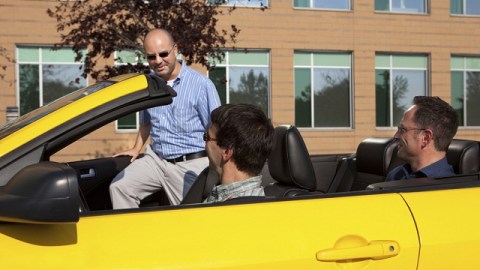Increase in European Carpooling Marks Larger Trend

Article written by guest writer Kecia Lynn
What’s the Latest Development?
Two European carpooling companies, BlaBlaCar and Carpooling.com, are poised to change how people in the developed world travel, thanks to investment from several venture capital firms. According to an article in the New York Times, more than 1.4 million rides are booked monthly between the two companies. Unlike their American counterpart ZipCar, the European versions involve car owners who offer seats for a fixed price. In fact, Carpooling.com hopes to start its service in the United States soon.
What’s the Big Idea?
Writer Derek Thompson uses graphs to show that, contrary to belief, the trend away from car ownership has been going on for 20 years in Europe, Japan and Australia. Increased gas prices and migration to cities are behind the trend. However, auto manufacturers aren’t losing sleep just yet: “[H]alf of last year’s new car sales came from developing economies, for whom [the concept of] ‘peak car’ is a date far in the future.” Not too far, according to Thompson: The slowing of growth in countries like China and Brazil, along with established public transportation systems and the continued rise of gas prices, means that group travel is still a convincing alternative.
Photo Credit: Shutterstock.com



